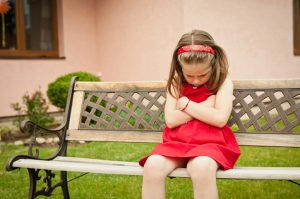 Some people say they do not want to come out of therapy blaming their parents for everything. After all, their parents did the best they could at the time, especially with what they were given—so leave them out of it.
Some people say they do not want to come out of therapy blaming their parents for everything. After all, their parents did the best they could at the time, especially with what they were given—so leave them out of it.
A therapist once told me that if you end therapy still angry at your parents, then you haven’t gone far enough.
Some people come to therapy with a lot of apparent, upfront anger toward mom and/or dad. Others are wary of saying anything negative about the people who raised them. Rarely does either of these versions of parents represent a full understanding of who they were or who they have become.
Seeing Your Parents as If You Are Still a Child
A major task in treatment is to understand who your parents were to you through how you saw them as a child. I know, you’re not still a child, but often we didn’t get to express those full-throttle feelings when we were kids. Luckily, we get to do so now—and it can be extraordinarily helpful to us as adults.
As a child, perhaps you didn’t fully understand that a parent didn’t attend any of your baseball games because they had to work overtime in order to provide for you; you just experienced hurt and anger that they weren’t there. Your parent had a valid reason not to be there, but that doesn’t mean your feeling wasn’t also valid. As an adult (who may be missing your own child’s games because you have to work), there may be guilt on top of the anger and hurt you felt. Perhaps you’re ashamed you were ever upset. Seeing the situation through an adult lens, you think: “They were doing something for me, so how dare I be angry?”
Therapy says to let yourself be angry. Feel the anger. Feel it deeply. This way, you don’t squelch it and have it come out somewhere else, perhaps in passive-aggressive remarks to your own children; over-emphasizing every game, play, and recital your kids have; or avoiding conversations with your parents for fear you’ll “lose it” with them. Consequently, you don’t wind up judging yourself for having those reactions.
Attachment Style Without Logic
You also had an understanding of your parents pre-verbal memory. Did they come when you cried? Maybe they did most of the time, maybe they weren’t very quick about it, or maybe they never left you. You were an infant, so you didn’t know they were also taking care of a sibling, going to the bathroom, heating up your bottle, or just needing a rest. Attachment theory shows us that these early experiences, apart from the logical reasons behind them, matter a lot for us now.
Therapy says to let yourself be angry. Feel the anger. Feel it deeply.
I want to reiterate that the object is not to blame your parents. It’s not to be mad and stay mad.
We do damage to ourselves when we refuse to fully express and feel our feelings. That’s not a license to punch someone, break things, or intentionally hurt someone’s feelings. Therapy is tailor-made for the space to express your deepest self. It’s a safe space to face fears of abandonment, retaliation, or ungratefulness, any of which (and more) your therapist should be trained to be on the lookout for and provide an alternative to.
You may have felt any number of difficult feelings toward even the most loving, present, and available parent. Those feelings, your feelings, are valuable. And they’re not going to just go away.
So if it’s hate you felt, express it. So you can love even more deeply.

The preceding article was solely written by the author named above. Any views and opinions expressed are not necessarily shared by GoodTherapy.org. Questions or concerns about the preceding article can be directed to the author or posted as a comment below.

 The Misunderstood Emotion: Getting to Know Your Anger
The Misunderstood Emotion: Getting to Know Your Anger Why ‘Time’s Up’ in Therapy Should Be Difficult to Hear
Why ‘Time’s Up’ in Therapy Should Be Difficult to Hear Rethinking Over-Thinking: Are You Getting in Your Own Way?
Rethinking Over-Thinking: Are You Getting in Your Own Way?

